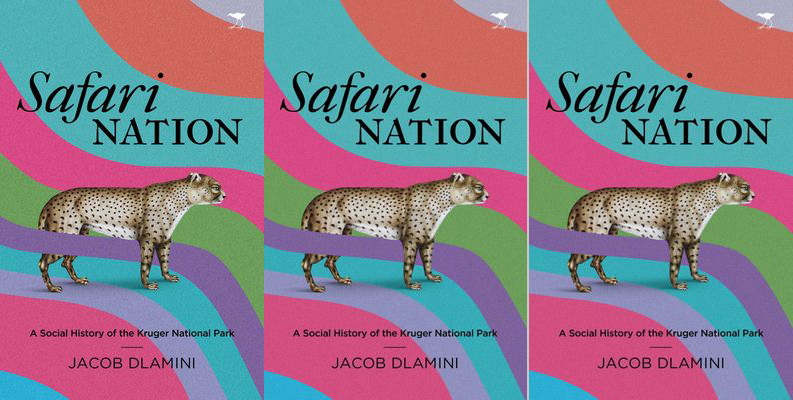As a black South African, Jacob Dlamini, an assistant professor of history at Princeton University, has brought an important perspective to conservation and natural history issues. Dlamini’s focus is the social history of the Kruger National Park, a history riven by complexity and conflict. He examines a range of issues: the politicisation of nature, migrant labour, the “Bantustans” and the largely neglected history of black tourism to the park under colonialism and apartheid.
One of the ironies of the Bantustans or homeland system uncovered here is that the park had to find ways to accommodate the tourists drawn from them as they had to be treated as international travellers. “... there is no doubt,” Dlamini writes, “that homelands helped to hasten the demise of apartheid by making it difficult for the KNP, for example, to maintain petty apartheid”. The largely forgotten experiences of Indian and coloured tourists to the park under apartheid are also brought to life. The park is used here as a lens on South Africa’s wider history in the 20th century.
The park was established in 1898 as the Sabi Game Reserve in 1898. When James Stevenson-Hamilton became the reserve's warden 1 August 1902, there were between 2,000 and 3,000 Africans living within its borders. There was also a military regiment with white and black soldiers.
“By 1 August 1903, the warden had disarmed and expelled the African families, driven the regiment out, and put a stop to open hunting,” Dlamini writes. That earned the warden the nick-name Skukuza. Today that is the name of the main tourist camp and staff village in the park and this reviewer was unaware that Skukuza means ‘the destroyer.’ (#Skukuza must fall?) Given South Africa’s history of forced removals, the name could be applied far more widely.
“By preventing Africans in the area from living off the land, Stevenson-Hamilton and his staff denied the Africans opportunities for independent living, effectively forcing them off the land. The Africans had to find other sources of livelihood,” Dlamini observes.
How could they make a living? The mines of Johannesburg, Kimberley and the Lowveld beckoned, as did the unpopular option of toiling on white-owned farms in the vicinity. Citing the historian Jane Carruthers, who has done much work on the history of conservation in South Africa, Dlamini notes that wildlife protection thus helped to give rise to a proletariat as industrialisation took off in the Transvaal.
This connects the history of the Kruger to the wider South African saga including the predatory exploitation of migrant labour that defined the mining industry for decades. Much of that labour would be drawn from sub-tropical rural areas of Mozambique near the park. The plight of these migrants has been detailed in historian Charles van Onselen’s masterful book The Night Trains.
Game reserves and conservation initiatives on the continent have often been at the expense of African interests, and Africans and non-Africans often have conflicting views of wildlife. In 1961, Tanzania’s first president Julius Nyerere famously said that he did not “want to spend my holidays watching crocodiles.”
Dlamini also quotes a Zambian politician from 1982 who, when asked to support the hardening of the country's anti-poaching laws, replied that: “At no time did rhinoceros or elephants participate in the fight for our independence.” Indeed, non-Africans often have romanticised views of the continent's megafauna. The view is not so romantic if you are, say, a subsistence farmer living under the threat of big animal attack. Dlamini could perhaps have devoted more attention to the historical background to these divergent attitudes.
But as he underlines: “... there was no singular African attitude and certainly no uniform African interests. By focusing on the dispossession and marginalization entailed by protected areas, scholars have done well to remind us of the centrality of justice to the post-colonial and post-apartheid projects. But their neglect of the stories of possession and the agency implied by that possession has left us with a truncated understanding of the history of black responses to protected areas in Africa.”
Dlamini notes that protected areas have not only survived “but thrived” in post-colonial Africa. African leaders such as Nelson Mandela embraced conservation, and this is not purely because of their economic or utilitarian value. Indeed, eco-tourism has economic limits, and many of the jobs that serve the sector are low-wage and semi-skilled.
This reviewer would have liked to see more attention given to the park’s history of fencing, the conservation model that remains in place in South Africa to contain dangerous megafauna - a model that I have argued helps to raise the rural poor above what I have dubbed the “faunal poverty line”. It is also a model that the ANC government inherited from its apartheid predecessor and retained firmly in place. This is an area where common ground is found on conservation issues, not least because it helps to shield the rural poor from the indignity and terror of big animal attack.
More attention could also have perhaps been given to the Mozambican economic migrants who risk megafauna attack by walking through the chilling faunal gauntlet that is park. The Kruger Park has detailed data on rhino poaching within its borders, but none on the toll taken by wildlife on these migrants, many of whom have been devoured by lions over the decades. Do black lives not matter more than rhino lives?
But these are minor quibbles. Dlamini’s thoughtful account has provided fresh insight into the interplay between Africans and conservation, and opened paths of inquiry for others to follow. These are the mark of a fine history and a fine historian. DM/ML
This article is more than 4 years old
South Africa
A safari into the social history of the Kruger National Park
Most conservation books set in Africa are written by white authors and often (unintentionally) for a white audience. Jacob Dlamini uses the park as a microcosm of South Africa’s wider history in the 20th century.





